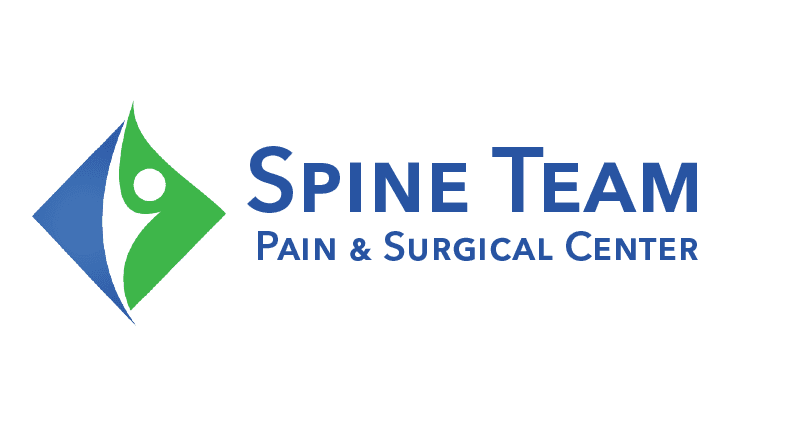Can constipation cause back pain? In which part?
Back pain can be caused due to many factors and over and above that if you are constipated, every day life can become difficult. The simultaneous occurrence of both problems cannot always be a coincidence. But who would have thought a condition like constipation can cause back pain?
To your surprise, constipation remains a leading cause of excruciating back pain in the back.
When you are constipated, your bowels get blocked up, this excess stool build-up puts extreme pressure on the rectum, which can lead to lower back pain. Lower back pain should be treated immediately regardless of the issue’s gravity and if constipation is its leading cause, it may indicate some underlying issue with your digestive system and that should be immediately addressed.
How Constipation Can Cause Back Pain?
During constipation, you are unable to pass stools which causes the intestines in your system to swell up, sometimes due to this, you may feel bloated and uncomfortable. This swelling in the intestine triggers pain in your back that feels like a dull ache at the beginning but can worsen if left unattended for a long time. The pain starts in your lower back and spreads to the rest of your abdomen.
There are majorly two reasons why constipation can cause back pain:
Fecal Impaction
When a large mass of stool gets stuck inside your colon critically and despite all the pressure you are unable to push it out, the condition is referred to as fecal impaction. It is a serious condition that gives a lot of discomfort and lower back pain. Fecal impaction should be treated medically else can become a dangerous cause for concern.
When you have fecal impaction, you suffer from many other symptoms except just awful back pain. It includes dehydration, little to no urge to pee, swollen belly, low blood pressure, fever, nausea, etc. Seek immediate help if at any point you start experiencing trouble breathing or you constantly feel dizzy. Ignorance of such problems can be life-threatening.
Some other causes that lead to fecal impaction other than just frequent constipation include laxatives, medication, less activity level, etc.
Generally, the treatment for fecal impaction is an enema or any anal suppository your doctor prescribes. Enema is a special liquid that softens the stool and is inserted into your rectum by a doctor. It gives immediate relief as once the stool gets softened; it starts to break down enabling you to pass it out smoothly.
Under no circumstances should you ignore a serious condition such as fecal impaction, and do not delay in getting medical attention especially when the lower back pain has started traveling to your lower limbs.
General Constipation
Sometimes, just having general constipation can also cause back pain. When you are constipated the extra fecal matter sitting in your bowel makes the intestines swell up, this blockage in your digestive tract puts enormous pressure on the muscles of your body especially your back, leading it to ache and become sore.
Constipation is defined as difficulty in passing a bowel movement or infrequent bowel movements. When suffering from constipation you will experience just 2-3 bowel movements in a week. Normal bowel movements occur once or twice within a span of 24 hours. The common symptoms of constipation include hard stools, a lot of pain and straining while using the toilet, a feeling of fullness even on empty stomach, and more.
The causes of constipation that lead to reduced bowel movements are mostly related to diet, lifestyle routines, habits, etc. If the problem persists and you are unable to diagnose the issue on your own then consulting a physician would be the best option. Determining the exact cause of the problem on your own becomes difficult after a point.
Though normal constipation doesn’t require medical intervention as it isn’t as grave as fecal impaction, it should however not be ignored. Simple dietary and lifestyle changes can easily cure the problem. Stretching, exercising, drinking plenty of water, and eating adequate fiber are excellent options for treating constipation.
Backpain Causing Constipation
Sometimes, however, it’s the other way around. It’s the back condition that is to blame for constipation. If you have an underlying infection or a tumor that puts excessive pressure on the spinal cord or you have recently experienced spinal cord injury or you are diagnosed with a nervous system disease, then most likely your body has developed a condition known as a neurogenic bowel, and that causes severe constipation. It’s not that only constipation can cause back pain, sometimes it’s vice versa as well.
Treatment options for constipation and back pain
General constipation doesn’t require any medication. It can easily be cured by some lifestyle and dietary changes. To begin with, you can incorporate home remedies as a part of your routine to keep constipation at bay. It includes drinking 3-4 liters of water every day and adding ‘p’ fruits to your daily diet like prunes, papaya, and pear. They are also considered natural stool softeners and provide immense relief if consumed daily.
You can also add over-the-counter (OTC) stool softeners, and high-fiber supplements to your daily diet to improve your condition.
If nothing is helping and providing relief, then most likely you are suffering from chronic constipation. Long-standing constipation or chronic constipation demands medical attention. Hence, you should discuss the methods and medication with your doctor.
Chronic constipation, if left untreated can lead to many other illnesses as well such as irritable bowel syndrome (IBS), bowel obstruction, and more. In this disorder, along with constipation, and other symptoms like cramping and abdominal pain, your large intestine also is directly affected.
In rare cases, constipation causes chronic pain, and to manage that pain, doctors prescribe certain lifestyle changes such as a change in diet, etc. Constipation medicines are usually the last resort taken to prevent or cure the issue.
When To See Your Doctor
Constipation can occur to anyone; it is not an illness per se. Different concoctions of tried and tested home remedies alleviate mild discomfort and also help in increasing the frequency of bowel movements.
However, there are certain symptoms like the ones mentioned below which are serious and should be immediately addressed. In case you are experiencing that, consider seeking medical attention as early as possible:
1. Haven’t had a bowel movement in 7 consecutive days
This indicates you have a blocked rectum or stool in your colon. This should be immediately removed under the guidance of a medical practitioner. It might be possible that you have fecal impaction. Such severe constipation causes back pain and can seriously damage the efficiency of the body.
2. Blood in stools
Blood in your stools is usually a sign of internal bleeding or anal fissures, inflammatory bowel disease (IBD) or even bowel obstruction at times. Sometimes, it happens due to a scratch or a tear on the lining of your digestive tract. Rare cases reveal it to be a symptom of colon cancer or ulcers.
3. Constant back pain
There are many cases where constipation causes back pain especially lower back but it isn’t intense or severe. It is rather fluctuating. No matter how trivial or critical the situation may be, always seek immediate medical attention as persistent back pain could also be a symptom of any other underlying issue in the body.
4. Fever
Prima facie, there is no connection between fever and constipation. But the unidentified and underlying reason for constipation can lead you to having a fever. This could be due to viral, bacterial, or parasitic infection. To cure such issues, you need medicines as prescribed by your doctor and hence should seek immediate medical advice.
Other Conditions That May Cause Back Pain
Yes, constipation causes back pain but that isn’t the case always. There are many other symptoms as well that can equally and most likely be the culprit. Sometimes, some other non-related issue can crop up, which could be the reason behind your chronic pain. Some of the common conditions that can trigger back pain apart from constipation are:
1. Lack of physical activity
Sometimes, work demands stretched sittings in one place without us realizing that we haven’t moved nor had taken a sip of water since hours and both reasons fairly contribute to severe constipation and back pain. It is always recommended to take small breaks and to move a little to help your body function better.
2. Spinal injuries
Sometimes, spinal injuries such as a slipped disc or pelvic injury cause serious back pain. Though injuries like these rarely go undetected it isn’t impossible. The ignorance of such problems can lead to the worsening of back pain issues. We would, however, still associate the issue with constipation. Hence, it is recommended to have regular body check-ups to timely determine any underlying issue and to prevent it from becoming a bigger problem in future.
3. Other common issues include:
- Improper sleep positions
- Muscle strain
- Tumor
- Obesity
No matter the severity, it is always better to get it examined thoroughly. It will not just save you from the pain but also prevents the issue from becoming a major cause for concern in the future.
How Spokane Spine Team Pain Centre Can Help?
If you are tired of battling chronic back pain and looking for effective options to rest and relax, then the Spine Team Pain Center can greatly help. Their remarkable recovery sessions focus on providing measurable improvements in the shortest time possible. They will work with you to eliminate constipation and eventually help you get rid of back pain. Get the correct diagnosis and work on long-term improvements.
Their experienced physical therapists keep you away from pain pills and guide you towards a better lifestyle by keeping you active and motivated. Enhance the quality of your life by indulging in their therapeutic sessions.
Frequently Asked Questions
Which type of pain is experienced with constipation?
Constipation causes back pain, especially in the lower part of the area. Many people also complain of side pain which is mild but causes great discomfort.
What are the remedies/solutions that help with constipation and back pain?
Constipation can be easily cured with some dietary and lifestyle changes. Increasing your water intake, including a fiber-rich diet in your routine, exercising and walking etc treats the problem fairly well. For quick relief, however, you can opt for over-the-counter medication, stool softeners, and fiber supplements.
Can prolonged constipation cause back pain?
Prolonged constipation means irregular bowel movements which create a blockage and put excessive pressure on the surrounding organs, especially around veins in the lower back area. This sometimes causes mild to severe lower back pain. If constipation persists for longer than 3 weeks, seek immediate medical attention.
Wrapping it up
Constipation in itself is a very uncomfortable issue and when it is accompanied by back pain, it becomes really difficult to deal with. The first step toward finding a perfect cure for it is to correctly identify the reason behind constipation. Treating the issue right from the source will surely help in curing constipation and also back pain.
Generally, constipation can be treated at home with tried and tested remedies. Increasing water intake, including fiber-rich foods in your diet, and living a healthy lifestyle, are some effective solutions for constipation.
If, however, you witness bleeding from the rectum, unexplained weight loss, and persistent back pain, then it’s time to check with the doctor to diagnose the underlying issue.






